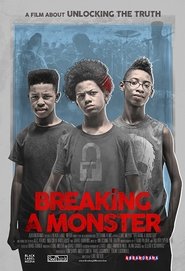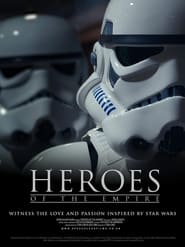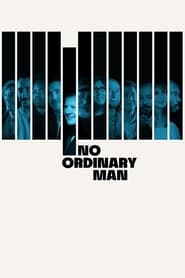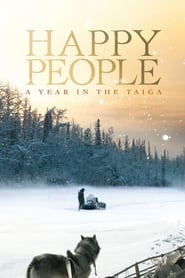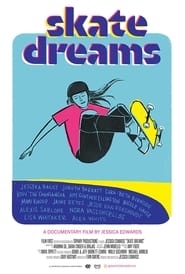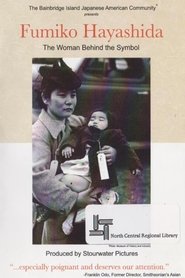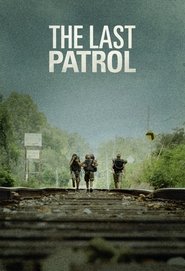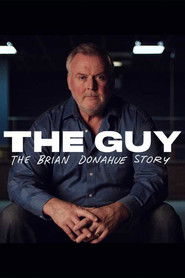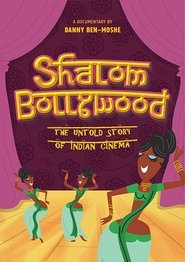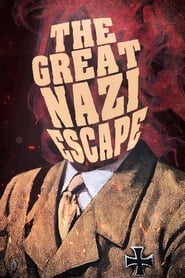Popular Documentary Movies on Free Services - Page 152
-
Breaking a Monster
2015
Breaking a Monster
2015
star 3.2As seventh-graders, band members of Unlocking The Truth spend their weekends playing metal music in Times Square—often to substantial crowds. After signing with a 70-year-old manager, they are soon on their way to a $1.8 million record deal. -
Heroes of the Empire
2018
Heroes of the Empire
2018
star 6This 60 minute documentary follows the 501st UK Garrison Star Wars costuming club around the UK, as they attend a variety of fund raising events - revealing the side of costuming you've never seen before. From international film premieres to children's hospital visits, witness the impact that the UK Garrison have on the hearts and minds of the fan's they meet. Many people have a misguided perception of costumers, labelling them as "nerds" and "geeks". The film will reveals the wide variety of people who are inspired to join the UK Garrison, from all walks of life and occupations. For these individuals, being "Heroes of the Empire" is their true identity. -
Heading Home: The Tale of Team Israel
2018
star 8A team of nice Jewish baseball players takes on the world. -
No Ordinary Man
2021
No Ordinary Man
2021
star 4The legacy of Billy Tipton, a 20th-century American jazz musician and trans icon, is brought to life by a diverse group of contemporary trans artists. -
Happy People: A Year in the Taiga
2010
star 7.3In the center of the story is the life of the indigenous people of the village Bakhtia at the river Yenisei in the Siberian Taiga. The camera follows the protagonists in the village over a period of a year. The natives, whose daily routines have barely changed over the last centuries, keep living their lives according to their own cultural traditions. -
Hood to Coast
2011
Hood to Coast
2011
The documentary follows four unlikely teams on their epic journey to conquer the world's largest relay race. A 67-year-old heart attack survivor returns to conquer the race that nearly killed her, a family in mourning runs to honor the memory of their beloved, a group of film animators test the limits of their athleticism (or lack thereof), and a group of aging jocks show they still know how to have a good time. A celebration of personal determination and the power of family and friends, the film proves that you're never too old or too young to attempt the extraordinary. -
Banana in a Nutshell
2005
Banana in a Nutshell
2005
star 6.7An intimate portrait of a Chinese-European couple in New Zealand, and their journey to get a blessing for marriage from traditional Chinese parents. The story that led to the film, My Wedding and Other Secrets. -
The Pervert's Guide to Ideology
2012
star 7.3A journey into the labyrinthine heart of ideology, which shapes and justifies both collective and personal beliefs and practices: with an infectious zeal and voracious appetite for popular culture, Slovenian philosopher and psychoanalyst Slavoj Žižek analyzes several of the most important films in the history of cinema to explain how cinematic narrative helps to reinforce prevailing ethics and political ideas. -
Beware of Mr. Baker
2012
Beware of Mr. Baker
2012
star 7.4Ginger Baker is known for playing in Cream and Blind Faith, but the world's greatest drummer didn’t hit his stride until 1972, when he arrived in Nigeria and discovered Fela Kuti's Afrobeat. After leaving Nigeria, Ginger returned to his pattern of drug-induced self-destruction, and countless groundbreaking musical works, eventually settling in South Africa, where the 73-year-old lives with his young bride and 39 polo ponies. This documentary includes interviews with Eric Clapton, Steve Winwood, Carlos Santana and more. Beware of Mr. Baker! With every smash of the drum is a man smashing his way through life. -
Arcades & Love Songs: The Ballad of Walter Day
2025
A musical documentary following 74-year-old Walter Day - the father of esports and star of "The King of Kong" - as he battles a lawsuit threatening his legacy while fulfilling his dream of recording and performing the rock-opera style love songs he has been hearing in his head since having his heart broken at the height of the arcade era. -
Skate Dreams
2022
Skate Dreams
2022
star 5.5Skate Dreams, the first feature documentary about the rise of women’s skateboarding, profiles a group of women whose pursuit of self-expression, equality, and freedom have created an international movement on and off their skateboards. From their boycott of the X-Games, to their defiance of traditional skateboarding gatekeepers, through grueling worldwide skate competitions in the run up to the Olympics, Skate Dreams showcases the charismatic personalities, indomitable spirits and amazing talent of these trailblazing pioneers. -
Fumiko Hayashida: The Woman Behind the Symbol
2009
Fumiko Hayashida: The Woman Behind the Symbol is both a historical portrait of Fumiko, her family and the Bainbridge Island Japanese American community in the decades before World War II as well as a contemporary story which follows 97-year old Fumi and her daughter Natalie as they return to the site of the former Minidoka internment camp, their first trip back together in 63 years. The film reveals how the iconic photograph became the impetus for Fumiko to publicly lobby against the injustices of the past. -
The Last Patrol
2014
-
JFK Assassination: The Definitive Guide
2013
star 7Documentary - tember 11th... Pearl Harbor... the assassination of JFK. Days that forever changed America. But the Kennedy assassination is different: 50 years after it happened, most Americans think we don't know who did it. Now History has conducted the largest nationwide survey ever attempted on the topic to learn exactly what the country believes. Who do Americans suspect was really responsible for JFK's death? - Jonathan Adams, Vincent Bugliosi, Z. Dieterich -
King of the Mountain
2015
King of the Mountain
2015
As a boy growing up, Samuel Mugisha dreamed of being a part of the Rwandan national cycling team, Team Rwanda, as he believed it would be a way to help make money for his family. What he discovered was something else entirely. In a country trying to get over the trauma of a genocide, Team Rwanda represents a lot more than sport. -
I Am Thor
2015
I Am Thor
2015
star 7Jon Mikl Thor was a bodybuilding, steel bending, brick smashing rock star in the '70s & '80s whose band, Thor, never quite made it big. Years later he attempts a comeback that nearly kills him. -
The Guy: The Brian Donahue Story
2019
star 7Stuntman. Actor. Full-time UPS employee. Former WWF wrestler, Disney World performer, and NFL nose tackle. Brian Donahue has seemingly done it all. Yet he's still searching for that elusive Hollywood dream. -
Shalom Bollywood: The Untold Story of Indian Cinema
2017
star 5The unlikely story of the 2000-year-old Indian Jewish community and its formative place in shaping the world's largest film industry. -
The Great Nazi Escape
2023
star 4.8Nazi Germany has fallen. After allied forces defeated Nazi Germany in World War II, Europe became a dangerous place to be associated with the Nazi regime as officers, party members, and supporters of Hitler began to flee Germany. -
Letter from Masanjia
2019
Letter from Masanjia
2019
star 8.2Damascus, Oregon, United States. Julie Keith finds a baffling message hidden in a pack of decorative items, a desperate plea for help, written by someone imprisoned in a Chinese labor camp called Masanjia…
 Netflix
Netflix
 Amazon Prime Video
Amazon Prime Video
 Apple iTunes
Apple iTunes
 Apple TV Plus
Apple TV Plus
 Disney Plus
Disney Plus
 Google Play Movies
Google Play Movies
 Paramount Plus
Paramount Plus
 Hulu
Hulu
 HBO Max
HBO Max
 YouTube
YouTube
 fuboTV
fuboTV
 Peacock
Peacock
 Peacock Premium
Peacock Premium
 Amazon Video
Amazon Video
 The Roku Channel
The Roku Channel
 AMC+
AMC+
 Kocowa
Kocowa
 Hoopla
Hoopla
 The CW
The CW
 Vudu
Vudu
 Starz
Starz
 Showtime
Showtime
 PBS
PBS
 Pantaflix
Pantaflix
 FXNow
FXNow
 Tubi TV
Tubi TV
 Kanopy
Kanopy
 Comedy Central
Comedy Central
 Crunchyroll
Crunchyroll
 Microsoft Store
Microsoft Store
 Redbox
Redbox
 Sun Nxt
Sun Nxt
 ABC
ABC
 DIRECTV
DIRECTV
 Crackle
Crackle
 Fandor
Fandor
 Plex
Plex
